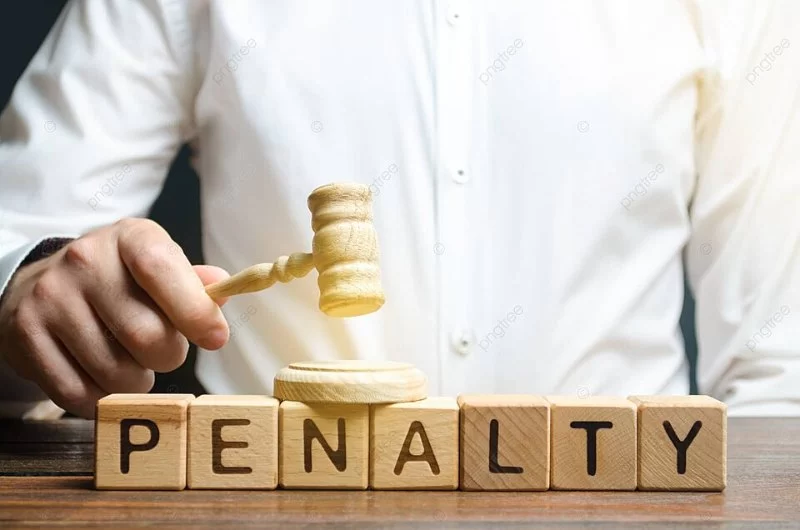
- child-pornography-laws-and-penalties-overview
- what-defines-child-pornography-under-the-law
- federal-vs-state-child-pornography-laws
- penalties-for-child-pornography-offenses
- high-profile-cases-and-legal-precedents
- legal-defense-strategies-and-rights-of-the-accused
- how-esplawyers-can-help-in-sensitive-cases
1. Child Pornography Laws and Penalties Overview
Child pornography laws represent some of the strictest and most vigorously enforced areas of criminal law. These laws aim to protect minors from exploitation and abuse in any form of visual or digital content. The legal consequences of violating child pornography statutes are severe and can include long-term imprisonment, lifetime registration as a sex offender, and permanent damage to one’s personal and professional life.
Understanding the legal framework behind child pornography offenses is essential not just for legal professionals, but also for parents, educators, and anyone who uses digital technology. As society grapples with new technological risks and evolving digital platforms, the line between illegal content possession and accidental exposure becomes increasingly nuanced.
2. What Defines Child Pornography Under the Law?
2.1 Legal Definition and Scope
Under U.S. federal law, child pornography is defined as any visual depiction—whether photographs, videos, or digitally created images—of sexually explicit conduct involving a minor under the age of 18. Importantly, this includes both real and computer-generated content that appears to involve minors.
2.2 Possession, Distribution, and Production
Possession refers to having illegal content stored in any form, including computers, phones, or cloud storage. Distribution involves sharing or transferring such content through digital or physical means. Production is the most serious offense and includes creating, directing, or participating in the making of such materials.
2.3 Distinctions Between Intentional and Accidental Possession
One gray area involves individuals who unknowingly download or receive illegal content through peer-to-peer file sharing or compromised links. While some courts may consider the intent and actions taken afterward (e.g., deletion, reporting), ignorance of the content rarely serves as a full legal defense.
3. Federal vs. State Child Pornography Laws
3.1 Federal Jurisdiction and Sentencing
The federal government enforces child pornography laws under statutes such as 18 U.S.C. § 2252 and § 2256. Federal cases typically involve stiffer penalties, especially when the internet or interstate activity is involved. Sentencing guidelines are strict and often leave little room for leniency.
3.2 State-Level Variations
Each state has its own criminal code for child pornography, and penalties can vary widely. For example, some states may differentiate between first-time offenders and repeat violators, while others apply mandatory minimum sentences regardless of context.
3.3 Example: California vs. Texas Statutes
California treats possession of child pornography as a felony in most cases, with possible sentencing enhancements for prior offenses. Texas, on the other hand, may charge possession as a third-degree felony but has additional laws targeting online activity. Legal outcomes can depend heavily on where the offense occurred.
4. Penalties for Child Pornography Offenses
4.1 Prison Sentences and Fines
Conviction can lead to sentences ranging from 5 to 30 years in federal prison. In aggravated cases—such as where the victim was particularly young or the content was widely distributed—judges may impose life sentences. Monetary fines can exceed hundreds of thousands of dollars.
4.2 Mandatory Sex Offender Registration
Most child pornography convictions require the offender to register as a sex offender, often for life. This status affects housing, employment, and even online activity. Some states also publish registries online, exposing the individual to public scrutiny and stigma.
4.3 Collateral Consequences
Beyond the courtroom, the accused may face job loss, educational expulsion, family breakdown, and severe mental health effects. Even mere accusations can cause irreversible damage to a person’s reputation and future.
5. High-Profile Cases and Legal Precedents
5.1 United States v. Michael Skakel
Though Skakel's case involved broader criminal charges, it drew national attention to the use of digital evidence in prosecuting historical allegations. This case set a tone for the admissibility of old or recovered digital files in court.
5.2 Operation Pacifier (FBI Sting Operation)
In one of the largest global takedowns of child pornography networks, the FBI ran a controversial sting operation using the “Playpen” website. Although the operation dismantled multiple trafficking rings, it sparked legal debates about entrapment and privacy violations. This case reshaped how digital surveillance evidence is handled.
6. Legal Defense Strategies and Rights of the Accused
6.1 The Importance of Forensic Evidence
Digital forensic experts play a key role in analyzing devices to determine whether illegal content was knowingly possessed or downloaded via malware. In many cases, defense attorneys argue that automatic downloads or shared connections led to unintended possession.
6.2 Constitutional Challenges
Fourth Amendment violations related to unlawful search and seizure often arise in child pornography cases. If authorities accessed devices without proper warrants, evidence may be deemed inadmissible. This legal angle has helped reduce or dismiss charges in multiple cases.
6.3 Presumption of Innocence
Although public perception often assumes guilt, the legal system upholds the principle that every individual is innocent until proven guilty. A knowledgeable legal team ensures that constitutional rights are protected at every stage.
7. How ESPLawyers Can Help in Sensitive Cases
7.1 Specialized Legal Support
Cases involving child pornography allegations require a unique blend of technical, legal, and psychological expertise. At ESPLawyers, our team understands the delicate nature of these cases and offers discreet, strategic counsel tailored to each individual’s situation.
7.2 Building a Strong Defense
We begin with a thorough review of digital evidence, law enforcement procedures, and client history. By exposing weaknesses in the prosecution’s case, we aim to reduce charges or achieve dismissals where possible.
7.3 Guidance Beyond the Courtroom
Our support doesn't end at sentencing. We help clients navigate life post-trial, from managing sex offender registration to restoring their reputation and rebuilding their lives. With ESPLawyers, you're never alone in the process.








